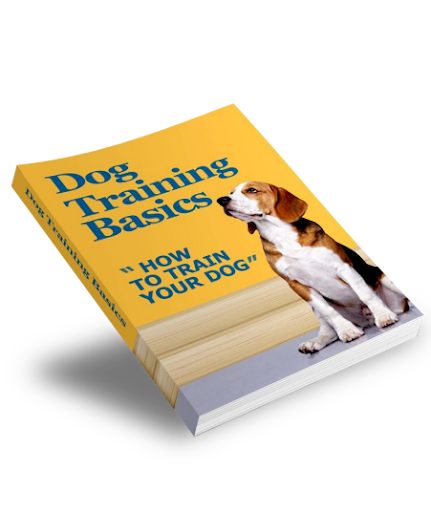Proven Marketing Strategies to Boost Book Sales in a Competitive Market
The book industry has never been more accessible — and more competitive. Thanks to self-publishing platforms and digital marketplaces, millions of books are available at readers’ fingertips. While this democratization of publishing is exciting, it also means authors face a critical challenge: how to stand out in a crowded market and actually sell books.
Success in today’s publishing landscape requires more than just writing a great book. You need a strategic marketing approach that connects with readers, builds visibility, and converts interest into sales. Whether you’re a first-time self-published author or a traditionally published writer looking to expand your reach, mastering proven book marketing strategies is essential.
1. Build a Strong Author Brand
Your brand is more than your book cover or website. It’s the perception readers have of you as an author. A clear, consistent brand helps you stand out in the marketplace.
-
Define your niche: Are you a fantasy world-builder, a business thought leader, or a self-help motivator? Identify the themes that define your work.
-
Consistency matters: Use the same tone, style, and visual identity across platforms — from your website to your social media profiles.
-
Share your story: Readers connect with authors as much as with books. Share your journey, values, and behind-the-scenes process to humanize your brand.
When readers trust your brand, they’re more likely to buy not just one book, but all the ones you publish in the future.
2. Optimize Your Book for Online Discovery
Most book sales today happen online, which means visibility in digital marketplaces is crucial. To boost discoverability:
-
Use keyword-rich titles and descriptions: Research the terms readers search for in your genre and incorporate them naturally into your book description.
-
Optimize your metadata: Platforms like Amazon rely heavily on categories, keywords, and metadata to recommend books. Choose categories strategically and use all keyword slots.
-
Design a standout cover: First impressions matter. A professional, genre-appropriate cover can dramatically increase click-throughs and conversions.
-
Craft a compelling blurb: Your book description should hook readers immediately. Focus on benefits, intrigue, and emotional pull rather than lengthy summaries.
3. Leverage Social Media for Engagement and Sales
Social media gives authors the power to connect directly with readers. But success depends on strategy, not just presence.
-
Choose the right platforms: Fiction authors often thrive on Instagram, TikTok (BookTok), and Facebook groups, while nonfiction authors may find LinkedIn and Twitter (X) more effective.
-
Provide value, not just promotion: Share tips, insights, or entertainment that resonate with your audience. A feed full of “buy my book” posts won’t engage readers.
-
Harness visuals and video: Platforms like TikTok and Instagram Reels have proven to boost book sales when authors share creative content (like “behind the scenes” writing clips or short excerpts).
-
Engage consistently: Respond to comments, join reader communities, and create authentic connections. Relationships lead to sales.
4. Build and Nurture an Email List
An email list is one of the most powerful tools for book marketing because it gives you direct access to your readers.
-
Offer a lead magnet: Provide a free short story, sample chapters, or a resource guide in exchange for email sign-ups.
-
Send regular updates: Share writing progress, special discounts, or exclusive content to keep subscribers engaged.
-
Segment your list: Tailor messages to different groups — for example, fiction readers vs. nonfiction readers.
Email marketing is especially effective because it builds a loyal audience that you can tap into for every book launch.
5. Harness the Power of Reviews
Positive reviews provide social proof that influences buying decisions. Without them, even great books struggle to gain traction.
-
Encourage readers to leave reviews: Add a polite note at the end of your book asking readers to share feedback.
-
Reach out to book bloggers and influencers: Offer free copies for an honest review.
-
Use review services carefully: Reputable platforms like NetGalley can connect you with reviewers. Avoid shady “paid review” schemes, which can harm credibility.
-
Respond gracefully to criticism: Negative reviews are inevitable. Instead of arguing, use feedback to grow and show professionalism.
6. Utilize Book Launch Strategies Effectively
A strong launch sets the tone for long-term sales. Create buzz before your release date.
-
Build anticipation: Announce your book early and share sneak peeks, cover reveals, or countdowns.
-
Offer pre-orders: Many platforms allow authors to collect sales before launch day, boosting visibility.
-
Plan a launch event: Host an online launch party, livestream Q&A, or virtual book reading.
-
Leverage your network: Ask friends, family, and colleagues to share your book on launch day to increase exposure.
7. Partner With Influencers and Communities
Readers trust recommendations from people they follow. Collaborating with influencers can introduce your book to wider audiences.
-
BookTubers and BookTok creators: These communities have significant sway in the publishing world, especially for young adult and genre fiction.
-
Book clubs: Reach out to local and online clubs to suggest your book as a group read.
-
Podcasts: Appear as a guest on podcasts related to your book’s theme or genre.
Partnerships allow you to tap into audiences that may not have discovered you otherwise.
8. Explore Paid Advertising
While organic reach is powerful, paid ads can give your book an extra push.
-
Amazon Ads: Target readers directly on the world’s largest bookstore.
-
Facebook and Instagram Ads: Narrow down by demographics, interests, and reading habits.
-
Book promotion sites: Platforms like BookBub, BookSends, or Bargain Booksy can expose your book to thousands of potential readers.
Paid advertising requires testing, but when done right, it can generate steady sales and boost rankings.
9. Diversify Sales Channels
Don’t rely solely on one retailer like Amazon. Expand your reach.
-
Sell directly from your website: This gives you higher margins and builds a closer relationship with readers.
-
Distribute to multiple platforms: Use aggregators like Draft2Digital or IngramSpark to get your book into Apple Books, Barnes & Noble, Kobo, and libraries.
-
Explore audiobooks: With the audiobook market booming, producing an audio version can open new revenue streams.
10. Turn One Book Into Multiple Opportunities
A single book can generate far more than direct sales if marketed creatively.
-
Bundle books: Offer box sets or collections at discounted prices to encourage bulk purchases.
-
Create companion products: Workbooks, journals, or spin-off stories can extend your brand.
-
Adapt into different formats: Consider translations, audiobooks, or graphic novel editions.
Maximizing the life of your book makes your marketing efforts more sustainable.
11. Track and Measure Your Results
The best marketing strategies are data-driven. Monitor performance to refine your approach.
-
Track sales data: See which platforms and promotions deliver the most results.
-
Analyze engagement metrics: On social media and email campaigns, measure open rates, clicks, and conversions.
-
Experiment and adapt: Marketing is not one-size-fits-all. Test different strategies, drop what doesn’t work, and double down on what does.
Case Studies of Successful Book Marketing
-
Colleen Hoover: Leveraged TikTok (BookTok) to turn her backlist novels into viral hits, dominating bestseller lists.
-
Mark Dawson: Built an email list and mastered Facebook ads, selling millions of self-published thrillers.
-
James Clear (Atomic Habits): Used content marketing, podcasts, and newsletters to build an audience before launch, turning his book into a global bestseller.
These examples prove that with the right strategies, authors can break through even in crowded markets.
Final Thoughts
Selling books in today’s market is not just about writing well — it’s about marketing smartly. From building an author brand and harnessing social media to email marketing, reviews, and paid advertising, success comes from combining multiple strategies into a cohesive plan.
The most important thing to remember is consistency. Book sales rarely happen overnight, but with persistent effort, strategic planning, and authentic engagement with readers, authors can boost sales and build careers that last.
Your book is more than words on a page — it’s a product, a brand, and a gateway to long-term opportunities. By applying these proven marketing strategies, you can transform it from just another title in a crowded market into a story that reaches readers worldwide.







